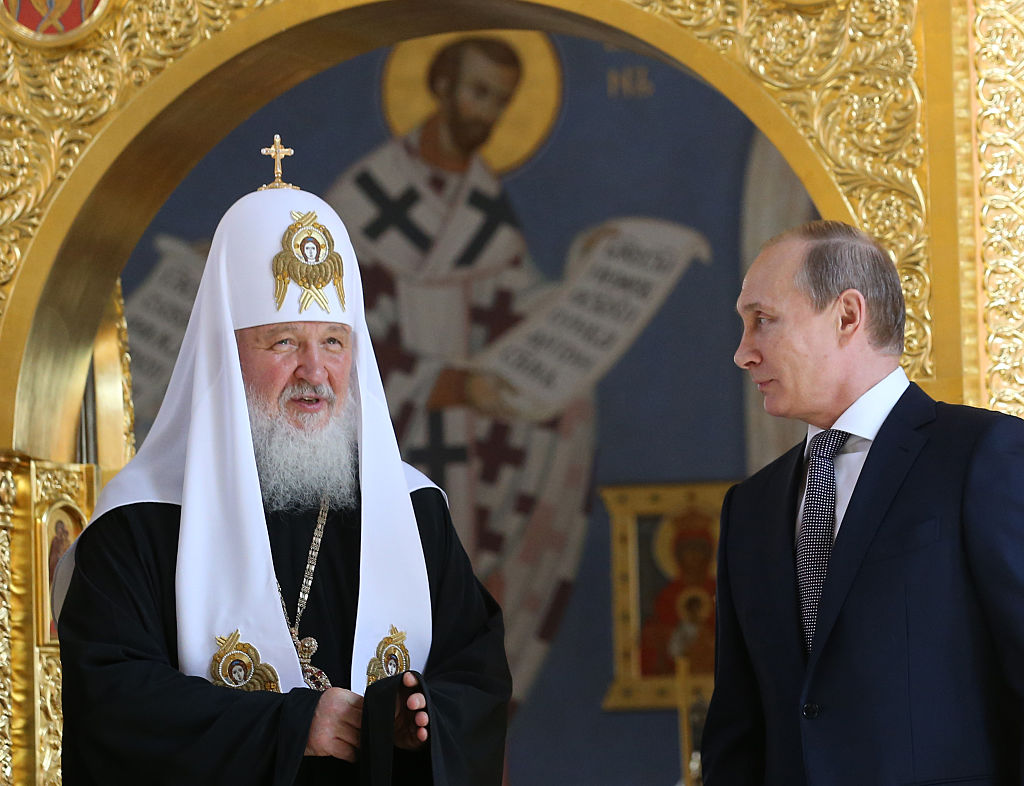Russian Orthodox Church Viewed as Tool to Spread Kremlin Influence
ADF STAFF
The Russian Orthodox Church is quietly winning allegiance from priests and parishes from the
Patriarchate of Alexandria in Egypt with offers of humanitarian aid, vaccines, infrastructure, schools, hospitals and spiritual patronage.
Experts say this is a geopolitical strategy meant to help the Kremlin spreads its influence on the continent amid an ongoing battle within the Orthodox Church over the war in Ukraine.
“Most analysts of Russia’s presence in Africa would miss this development,” Bob Wekesa, director of the African Center for the Study of the United States at the University of the Witwatersrand in South Africa, told the Foreign Policy Research Institute (FPRI). “Because it is not the most publicized of Russia’s strategy in Africa.”
Located in the Egyptian port city, the Patriarchate of Alexandria looks after the continent’s estimated 1 million Eastern Orthodox Christians.
The Russian Orthodox Church has for centuries been one of the most powerful bodies in orthodoxy and commands power beyond most religious denominations. It is closely linked to the Russian state and functions as a de facto arm of the government.
J. Peter Pham, an ordained Episcopal priest with a doctorate in theology and a postgraduate degree in canon law, recently visited African churches and spoke with clergy from diverse denominations.
“Whenever I traveled in these areas where I’d heard it was happening, I started looking into it. And it turns out it wasn’t just one or two isolated cases,” Pham, who has served as the United States special envoy for the Great Lakes Region and was the first-ever Sahel envoy, told Foreign Policy magazine.
“It was a large number of African Orthodox clergy who had been part of the Patriarchate in Alexandria and had been recruited by the Moscow Patriarchate,” Pham added. “It was very systematic.”
Patriarch Theodore II of Alexandria has said that his clerics have been paid $200 each for joining the Russian Orthodox Church.
In 2021, Russia established the Patriarchal Exarchate of Africa in response to requests from African Orthodox clergy after the Patriarch of Alexandria sided with the Orthodox Church in Ukraine after the Russian invasion.
The Russian Orthodox Church also opened more than 200 parishes in 25 African countries between December 2021 and July 2023, according to a report from the Russian news agency Interfax.
The Russian church’s expansion “is becoming a key component of the Kremlin’s exercise of soft power in Africa, promoting many conservative and anti-Western positions,” Charles A. Ray, wrote for the FPRI.
Patriarch Kirill of Moscow claims that the Patriarchy of Alexandria will lead the body of believers into the Western sphere of influence, according to a Politics Today report, while his agenda reinforces Russia’s ambitions in Africa and asserts that African nations can protect themselves from external pressures.
Theodore II shuns any efforts to politicize the Orthodox faith. In 2023, he warned the Orthodox world of the danger of
Moscow’s political ambitions in Africa. In an Orthodox Times report, he said Orthodox Africans are being “spiritually poisoned by the Patriarchate of Moscow.”
Ray argued in the FPRI report that the Russian Orthodox Church’s expansion in Africa cannot be looked at without considering its relationship to Russian state interests. The church is financially supported by Kremlin-backed entities.
“Its expansion, in the wake of Russia’s invasion of Ukraine, aims to challenge the existing Orthodox churches in Africa and to promote conservative, anti-Western alliances,” Ray wrote. “It appears to be more about enhancing the Russian image and expanding state influence than religious conversion.”
Wekesa said the Russian church faces an uphill task if it wants to convert Africans.
“I deduce that the Russian Orthodox (Church) will aim to capture a small elite tied to the top echelons of governments in pursuit of opaque Russian interests rather than winning large congregations,” he told the FPRI.

